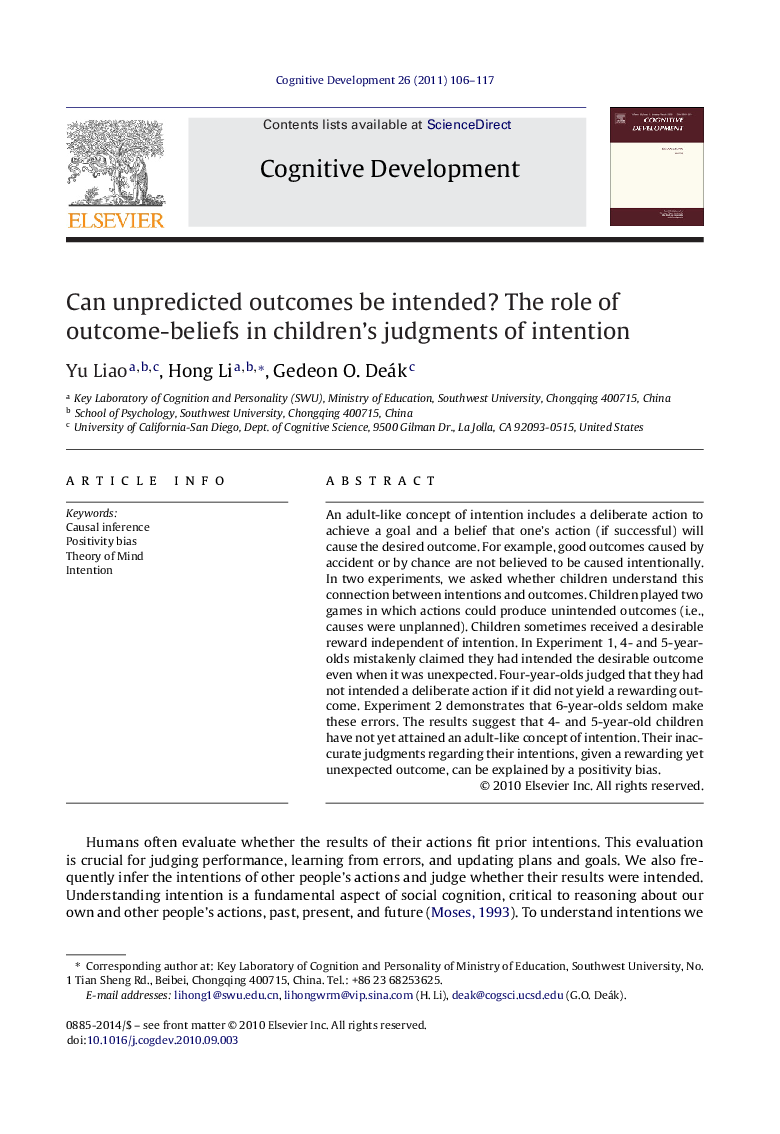| Article ID | Journal | Published Year | Pages | File Type |
|---|---|---|---|---|
| 916617 | Cognitive Development | 2011 | 12 Pages |
An adult-like concept of intention includes a deliberate action to achieve a goal and a belief that one's action (if successful) will cause the desired outcome. For example, good outcomes caused by accident or by chance are not believed to be caused intentionally. In two experiments, we asked whether children understand this connection between intentions and outcomes. Children played two games in which actions could produce unintended outcomes (i.e., causes were unplanned). Children sometimes received a desirable reward independent of intention. In Experiment 1, 4- and 5-year-olds mistakenly claimed they had intended the desirable outcome even when it was unexpected. Four-year-olds judged that they had not intended a deliberate action if it did not yield a rewarding outcome. Experiment 2 demonstrates that 6-year-olds seldom make these errors. The results suggest that 4- and 5-year-old children have not yet attained an adult-like concept of intention. Their inaccurate judgments regarding their intentions, given a rewarding yet unexpected outcome, can be explained by a positivity bias.
